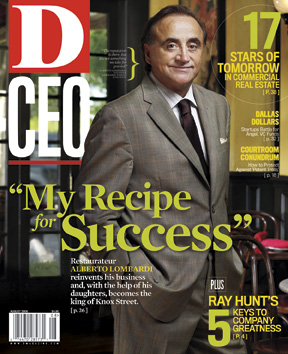“What’s in a name? That which we call a rose by any other name would smell as sweet.” CEOs seem to agree that William Shakespeare was wrong, at least when it comes to what they call employees and their descriptions of those employees’ jobs.
Albert Mehrabian, a researcher famous for his studies on nonverbal communication, writes that naming a child is one of the most important choices a parent makes. (If that’s so, what possessed future Texas Gov. and Mrs. James Hogg to name their only daughter Ima back in the 1880s?) Some CEOs feel the same way about their workers.
Southwest Airlines, known for connecting its culture to its business model, has a Senior Vice President of Culture and Communication, and a Director of Culture Activities who’s responsible for what the company calls “culture committees.” CEO Gary Kelly frequently says, “People are our competitive advantage.” In written Southwest communication, the words People, Employee, and Customer are always capitalized, Kelly says, “to demonstrate their importance to our business and our brand.”
Yahoo employee are called “yahoos,” and there’s a job title of Yahoo! Evangelist, part of the message that Yahoo is a high-tech company on a mission. (Yahoo stands for “Yet Another Hierarchical Officious Oracle”; the company insists there is no connection to the brutish “Yahoos” in Gulliver’s Travels.) Meanwhile, America Online calls the head of its date-matching site the CEO of Love. Even Berkshire Hathaway now calls the person in charge of its annual meeting the Director of Chaos.
Some companies have renamed their receptionists, calling them the “director of first impressions.” (This may have begun about the time garbage collectors became “sanitation engineers.”) The idea is that with the enhanced title, receptionists will see themselves differently—and better morale will mean less turnover.
However, Korn/Ferry International did a study two years ago that found that fancier job titles don’t convince people to stay with a company. Joe Griesedieck, vice chairman and head of the CEO practice at Korn/Ferry, said, “While this is well-intentioned, what we are increasingly seeing is ‘title inflation.’ We have found that, on its own, giving employees more impressive titles is an ineffective retention strategy.”
Even so, some CEOs think what they call employees makes a big difference. Howard Schultz at Starbucks dubbed the company’s workers “baristas” to emphasize their creativity and knowledge. The Ritz-Carlton Hotel Co. refers to employees as “ladies” and “gentlemen,” with the idea that real ladies and gentlemen display kindness and connection to customers.
John Imaizumi, senior vice president and general manager of the Gaylord Texan Resort and Convention Center in Grapevine, notes that the Gaylord refers to its employees as STARS (Smiles, Teamwork, Attitude, Reliability, and Service with a passion). “We have a ‘STARS First Always’ culture,” he says, “and strongly believe that great customer service starts with a highly satisfied work force.”
At FedEx Office, “We refer to each other as ‘team members,’ because we have more than 22,000 people around the world working toward the same goal of making every customer experience outstanding,” says Brian Philips, the company’s CEO.
Chick-fil-A, Target, Hilton Hotels, and Jamba Juice all call their employees “team members” as well. “Associate” is used at Wal-Mart, Home Depot, and Victoria’s Secret.
The Walt Disney Co. offers courses for business schools about how to merge culture and business strategies, and refers to its employees as “cast members.” At the Umpqua Bank in Portland, Ore., tellers are known as “universal associates,” and the bank branches boast Internet cafes in an effort to be “the cool bank.” That’s according to Barbara Baker, the bank’s executive vice president of cultural enhancement, who says it’s all a way to help recruit employees and customers in their 20s.
Don VandeWalle, chairman of the Management and Organizations Department at the Cox School of Business at Southern Methodist University, sums up the pros and cons: “When management uses a unique term such as ‘team member’ or ‘valued associate,’ it’s natural to ask what else is different,” he says. But there can be a downside. “Renaming employees backfires when they realize nothing else has changed about the job or culture. Then it becomes a Dilbert cartoon parody and a de-motivator.”
Whatever new names companies come up with, one unlikely to gain popularity is a term used by the Medieval Times dinner theater. It refers to its waitresses as “wenches.”




